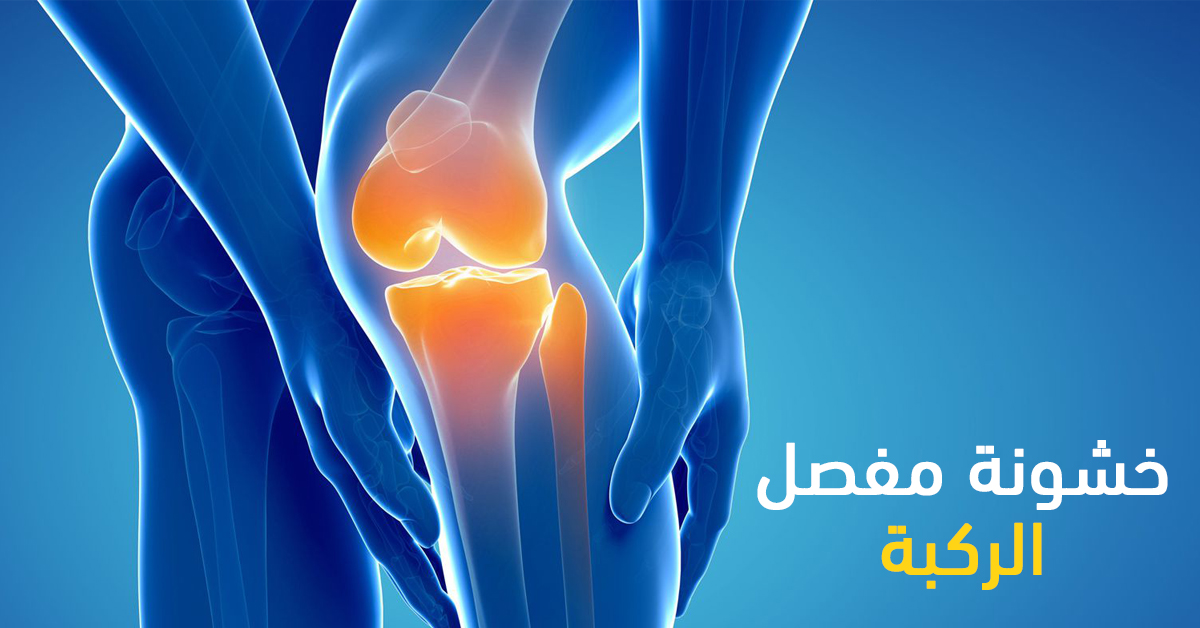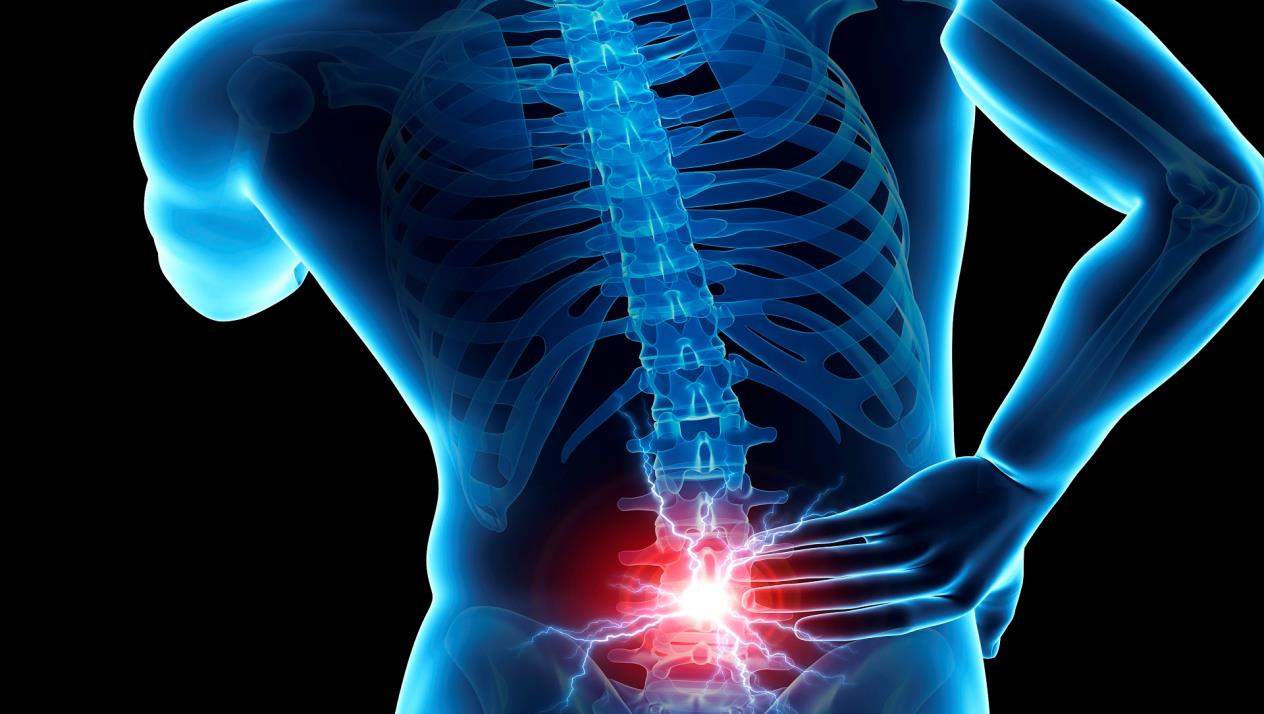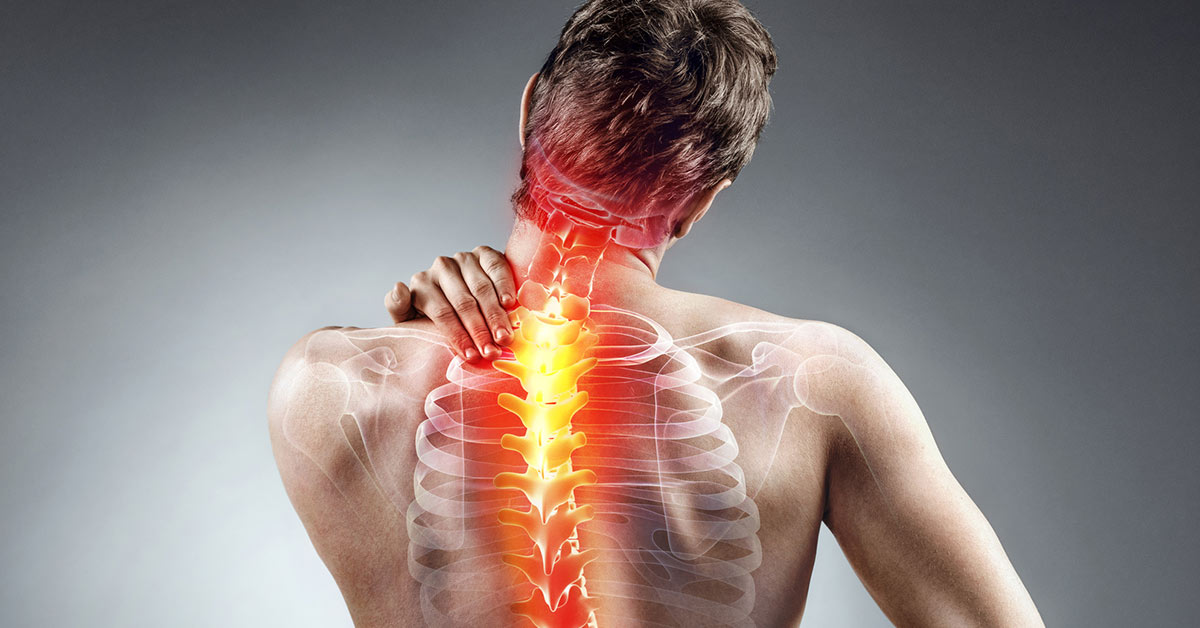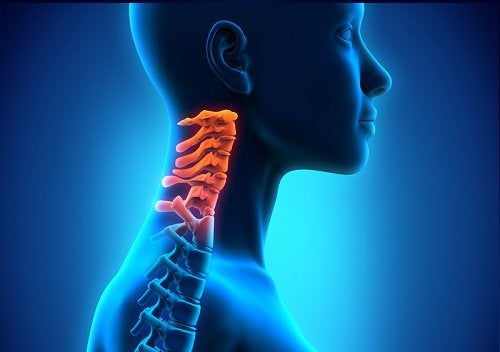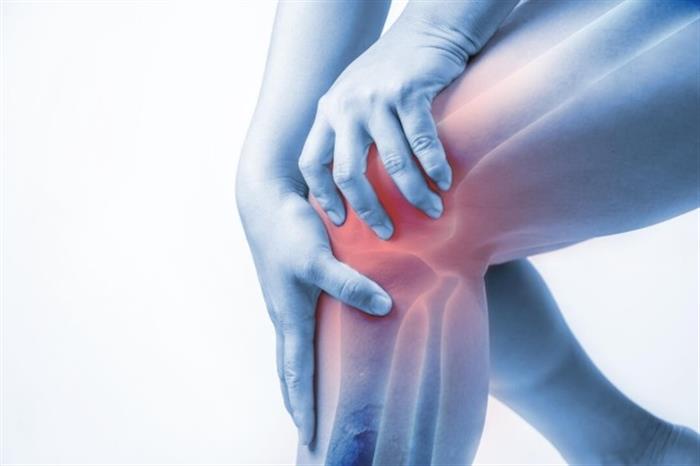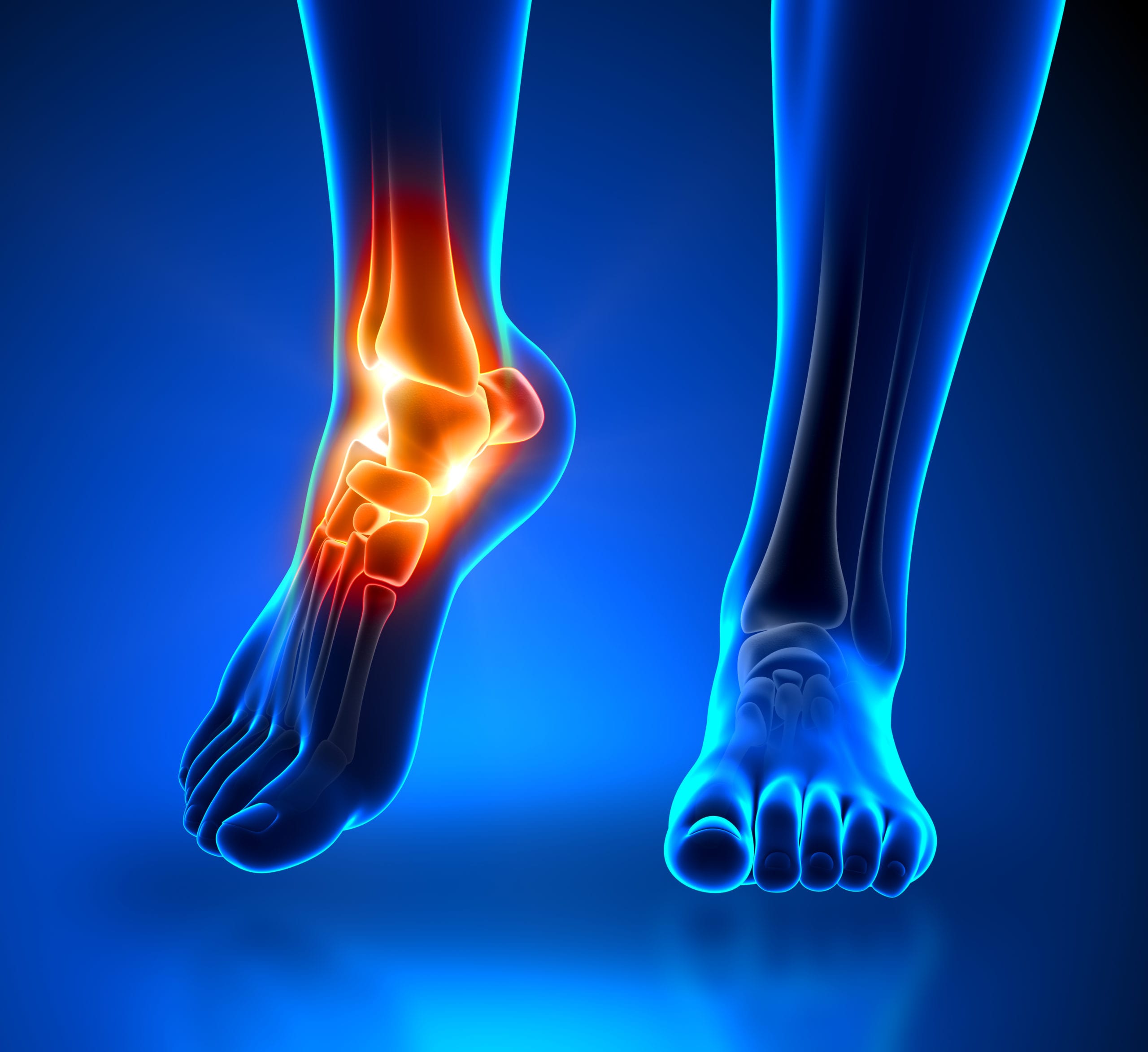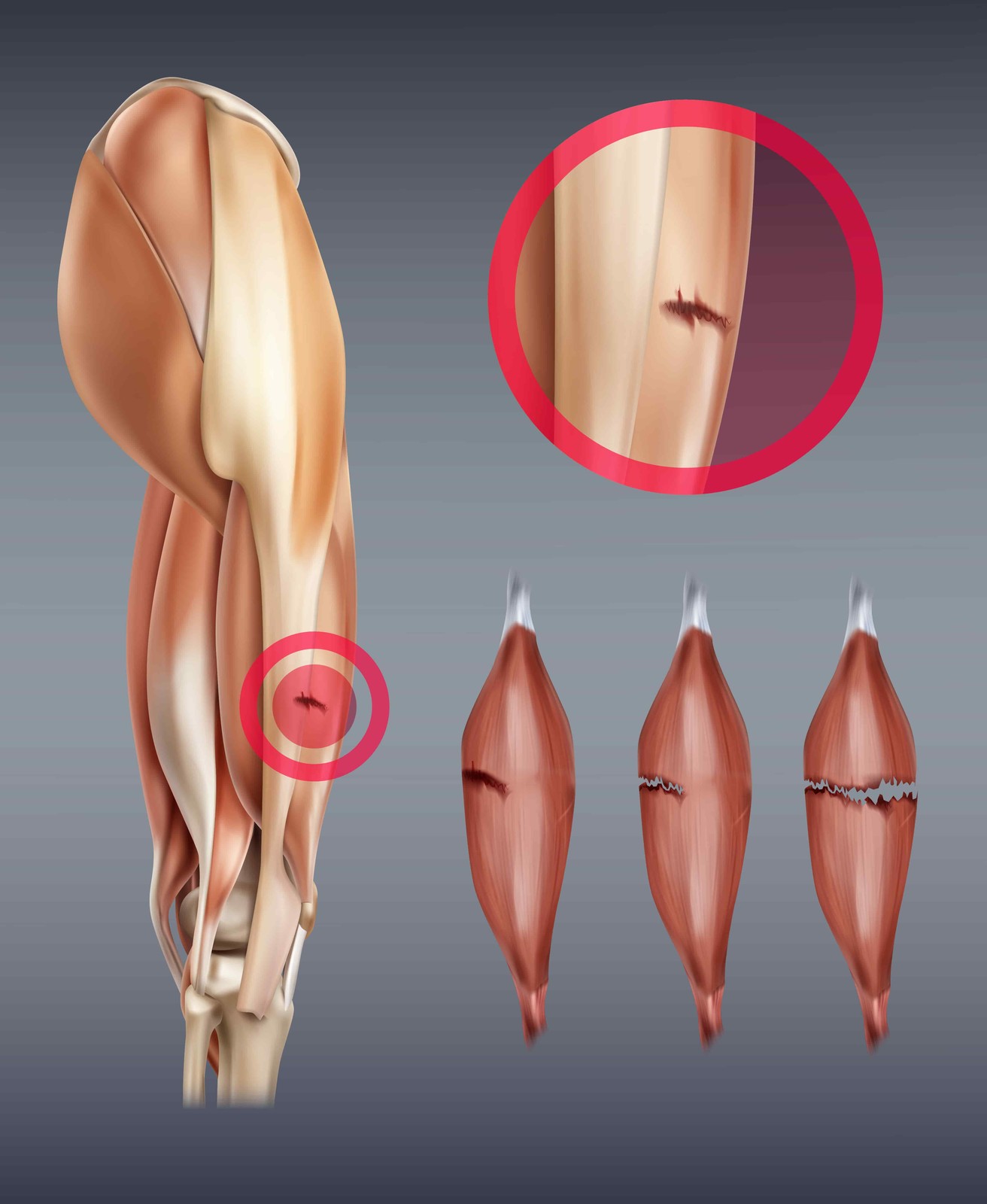What You Don’t Know About Neck Pain and How to Get Rid of Muscle Tension Neck Pain
What You Don’t Know About Neck Pain
Neck pain is a common condition that affects many people at different stages of their lives. It can be bothersome, painful, and may impact daily movement and overall quality of life. In this article, we will look at the causes of neck pain, its symptoms, and home remedies.
There are many different factors that can cause neck pain. Sitting for long periods in front of a computer or engaging in activities that require prolonged sitting can be one of the common causes of neck pain. Stress and anxiety may also be contributing factors to neck pain. Pain may also occur as a result of physical injury such as a car accident or a fall.
Symptoms of neck pain can vary from person to person. Some may experience sharp pain in the neck that extends to the shoulders and back, while others may feel stiffness in the neck. Neck pain can also be accompanied by other symptoms such as headaches, dizziness, and numbness in the upper extremities.
In most cases, neck pain can be treated at home with some simple measures. Firstly, you can give your neck some rest by avoiding strenuous activities and relaxing. You can also apply cold or warm compresses to the neck area to alleviate pain and swelling. Simple stretching exercises, such as tilting forward and backward, can help strengthen the neck muscles and improve their flexibility.
However, in some cases, neck pain may be a symptom of a larger issue. In these instances, it may be necessary to visit a doctor or an orthopedic specialist. You should seek medical assistance if the pain is severe, persists for a long period, or is a result of a traumatic incident such as a car accident. The doctor may assess your condition and prescribe the appropriate treatment for you, whether that be medication, physical therapy, or rehabilitative therapy.
In conclusion, neck pain is a common condition that can be treated at home with some simple procedures. However, in cases of severe pain or prolonged discomfort, a visit to the doctor is advised to diagnose the problem and determine the appropriate treatment. Always remember the importance of rest, relaxation, and performing simple exercises to strengthen neck muscles and maintain good neck health.
When is neck pain serious?
Neck pain is a common complaint affecting many people at different stages of their lives. Usually, neck pain is not serious and goes away naturally, but there are serious cases and symptoms that may accompany neck pain which require immediate medical intervention and consultation with a specialist.
Among the situations that require contacting a doctor:
Feeling neck pain as a result of an accident while riding a bike, driving a car, or a fall. This type of pain may be an indicator of a serious injury in the neck or spine. The spread of pain or numbness from the neck to the hands and legs. This may indicate a problem with the nerves or spinal disc. Experiencing severe unbearable pain in the neck or if the pain persists for several days without any improvement. This may be an indicator of inflammation or serious injury in the neck. Feeling pain in the head or stiffness in the neck. This may indicate a problem in the neck that needs medical evaluation.
There are also some common causes of neck pain that may not be serious and only require taking some therapeutic measures to relieve the pain. Among these causes:
Excessive use of the neck, such as sitting for long hours in a hunched position in front of the computer or smartphone. This can lead to muscle strain and the appearance of neck pain. Improper body posture, such as bending over a computer or a work table. These postures can strain neck muscles and cause pain. Osteoarthritis, which is a common condition that causes neck pain. Diagnosing and treating this condition requires a specialist.
When suffering from neck pain, you can follow some simple therapeutic measures to alleviate the pain, such as applying ice or heat to the painful area, avoiding activities that increase the pain, and gently practicing neck muscle strengthening exercises.
It is necessary to contact a doctor if neck pain persists for several days without any improvement, or if it is accompanied by a headache or numbness, weakness, or tingling. It should be noted that the neck carries the weight of the head and is a sensitive area, therefore it is prone to injuries and medical conditions that cause pain and restrict movement.
In the end, you should consult a specialist to properly evaluate your condition and direct you to the appropriate treatment if neck pain requires it. Do not hesitate to seek medical help if there are any serious problems or chronic symptoms that accompany neck pain.
What should you do if your neck hurts?
When a person experiences neck pain, the discomfort can be annoying and painful, and it may affect the quality of their daily life. The reason behind neck pain can be various, including poor sleep and incorrect posture during sleep. If you are suffering from neck pain due to incorrect sleeping, here are some tips and measures you can follow to alleviate the pain:
Use of comfortable pillows: It is preferable to use soft pillows made from feathers as they easily mold to the neck. A suitable pillow may help in maintaining the alignment of the neck and the spine in the correct position while sleeping, reducing the pressure on the muscles and ligaments in the neck.
Practicing light exercises and yoga: Light exercises and yoga can help in strengthening the muscles in the neck area and improving their flexibility. You can start with simple exercises such as slowly rotating the neck and shoulders without excessive movement. It is advised to perform these exercises daily and regularly to strengthen the muscles and improve their flexibility.
Applying heat and cold: Heat and cold can be used to relieve neck pain. Cold packs or ice wrapped in a towel can be applied to the painful area for 15 minutes several times a day during the first 48 hours. Afterward, heat can be used by placing warm compresses on the painful area. You can also try bathing with warm water or using warm compresses set on a low setting.
Gentle massage: Massage can play an important role in mobilizing stiff tissues in the neck area and relieving pain. You can use just the hand and fingers in the massaging process and avoid massaging too hard or forcefully. It is advised to massage gently and with circular movements on the painful area to relieve tension and improve blood circulation.
Consulting a physiotherapy specialist: If neck pain persists and worsens, you may need to consult a physiotherapy specialist. The expert can offer specific guidance and teach you the correct body posture and neck strengthening exercises that you can practice to strengthen the muscles and improve their flexibility. Physical therapy may also include the use of heat and ice and other procedures to help alleviate the pain.
In conclusion, if you suffer from neck pain due to incorrect sleeping, it is advised to follow these tips and procedures to alleviate the pain. However, if the pain persists or worsens, you should consult a doctor for an accurate diagnosis and to guide you to the appropriate treatment.
What are the causes of neck pain from the back?
Pain in the back of the neck is a common condition that occurs in many people. The pain may be due to several different factors and causes. Among these reasons, some include aging and joint wear and tear, others may result from problems in the spine and cartilage, and others may be due to environmental factors and daily habits.
With aging, the neck joints wear out like other joints in the body. The body usually forms bone spurs to resist this wear and tear, and these spurs can affect joint movement and cause pain. Also, herniated discs and bone spurs in the cervical vertebrae can press on the nerves branching from the spinal cord, causing pain.
Rear-end car collisions are a common cause of back neck pain. This occurs when the neck is suddenly thrust backward and then forward, subjecting the soft tissues in the neck to strain and injury.
The cause of neck pain from the back may also be related to problems in the spine and the discs between them. A muscle strain in the neck can result from a sudden movement of the body or due to excessive exercise. Muscle strain can cause muscle tears and inflammation, which leads to pain.
Incorrect body postures and prolonged use of computers can also be common causes of back neck pain. When maintaining an incorrect posture for a long time, the muscles and ligaments in the neck area can be under great stress, leading to their weakening, stiffness, and loss of flexibility, and thus can cause recurring neck pain from the back.
Although most causes of back neck pain are not serious, caution should be taken if the pain persists for a long time or spreads to the arms and shoulders. There may be serious conditions that require direct medical evaluation.
In general, the treatment of back neck pain depends on the doctor’s diagnosis and the identification of the underlying cause of the pain. Treatment may include self-care such as gentle stretching exercises and using ice packs to relieve pain and swelling. Pain relief medications or physical therapy may also be prescribed to strengthen muscles and improve neck movement.
In conclusion, individuals suffering from back neck pain should consult a doctor to diagnose the condition and determine the appropriate treatment. It is important to maintain a good body posture and to exercise regularly to prevent back neck pain.
What are the symptoms of a herniated disc in the neck?
A herniated disc in the neck is a condition that affects the disc located between the vertebrae of the neck. Many people, especially older adults, suffer from this problem. The condition is characterized by a rupture of the disc, causing sharp pain and stiffness in the neck.
The symptoms of a herniated disc in the neck include:
Feeling numbness or tingling in the shoulder or one of the arms, and this feeling may extend to the fingers. Weakness in the arm or hand. Headache. Stiffness in the neck.
The possible causes of a herniated disc in the neck are multiple and may include:
Aging or senescence, as neck problems usually begin to develop after the age of forty. Sitting or working for long hours, leading to disc wear. Occupations that cause pressure and stress on the neck. Incorrect posture while sitting or walking. Neglecting to practice regular sports exercises, causing stiffness in muscles and discs.
To treat cervical disc herniation, it is recommended to follow the following procedures:
Rest and avoid strong movements that increase pain. Applying cold to the affected area to relieve pain and swelling. Taking pain relievers and anti-inflammatory medications, as per the doctor’s recommendations. Physical therapy, such as exercises aimed at strengthening the muscles around the neck and improving flexibility. Heat therapy, such as using a heat pad or taking a warm bath to relieve pain and improve blood circulation. If symptoms do not improve after the treatments mentioned, it may be necessary to undergo surgery to remove the damaged disc or to stabilize the affected vertebrae.
It is important to consult a specialist to diagnose cervical disc herniation and determine the appropriate treatment. Symptoms should not be ignored, and treatment should not be delayed, as neglecting the problem can lead to worsening symptoms and deterioration of the condition.
In summary, cervical disc herniation is a condition that causes sharp pain and stiffness in the neck. Its symptoms include numbness or tingling in the shoulder or arms, weakness in the arm or hand, headaches, and neck stiffness. It can be treated with rest, physical therapy, pain medication, and in some cases, surgery. It is essential to consult a doctor to diagnose the condition and determine the right treatment.
Does vitamin D deficiency cause neck pain?
Yes, vitamin D deficiency can cause neck pain. Vitamin D is an essential vitamin that plays an important role in bone and muscle health. Vitamin D is produced in the body when the skin is exposed to direct sunlight, and it can also be obtained from certain foods and dietary supplements.
The neck is a sensitive area of the body, and vitamin D deficiency can lead to muscle weakness, neck stiffness, and pain. Vitamin D is necessary for the absorption of calcium and phosphorus, two essential minerals for bone and dental health. When there is a vitamin D deficiency, it can lead to weakened bones and an increased risk of conditions like osteoporosis.
Additionally, vitamin D is also important for muscle health. A deficiency in vitamin D can cause muscle weakness and pain in the neck and shoulders. If you are experiencing severe pain in the shoulders and neck, it could be due to a vitamin D deficiency.
It is important to consume an adequate amount of vitamin D daily to maintain bone and muscle health. Vitamin D can be obtained from direct sunlight and foods such as fatty fish and vitamin-fortified milk. You may also need to take vitamin D supplements if your levels are low.
To address neck disc herniation, the following procedures are recommended:
- Rest and avoidance of strong movements that exacerbate the pain.
- Applying cold to the affected area to alleviate pain and swelling.
- Taking pain relief and anti-inflammatory medications, according to the doctor’s recommendations.
- Physical therapy, such as exercises to strengthen the muscles around the neck and improve flexibility.
- Heat therapy, such as using a heat belt or warm water baths to relieve pain and improve blood circulation.
- If symptoms do not improve after the mentioned treatments, surgical intervention may be required to remove the damaged disc or stabilize the affected vertebrae.
It is crucial to consult a specialist to diagnose cervical disc herniation and determine the appropriate treatment. Symptoms should not be ignored or treatment delayed, as neglecting the problem can lead to symptom exacerbation and condition deterioration.
In summary, cervical disc herniation is a condition that causes sharp pain and stiffness in the neck. Symptoms include numbness or tingling in the shoulder or arms, weakness in the arm or hand, headaches, and neck stiffness. It can be treated with rest, physical therapy, pain medication, and in some cases, surgery. It is necessary to consult a doctor for diagnosis and appropriate treatment.
It is essential to consult your doctor to determine your body’s vitamin D levels and the appropriate dosage to compensate for any deficiency. The doctor may recommend a blood test to measure vitamin D levels and determine the suitable treatment.
In general, care should be taken to ensure an adequate intake of vitamin D and to maintain bone and muscle health. A vitamin D deficiency can cause neck pain and should be appropriately treated to maintain overall health.
What are the symptoms of muscle strain in the neck?
Muscle strain in the neck is a common condition that causes pain and tension in the neck muscles. It can occur due to many reasons, including overexertion of the muscles, psychological stress, sitting for long periods in an incorrect posture, and incorrect movements while exercising or performing daily activities.
Symptoms of muscle strain in the neck include:
- Pain in the neck: The pain may be present in the neck area and extend to the shoulders and upper back.
- Muscle tension: The muscles in the neck may be tight and tense, causing difficulty in moving the head and neck.
- Difficulty in movement: The patient may experience difficulty in moving their head and neck freely, and there may be a restriction in the range of motion.
- Headache: Muscle strain in the neck may accompany headaches, particularly in the forehead and sides of the head.
- Feeling of fatigue and stress: The patient may feel tired and generally stressed due to the pain and muscle tension in the neck.
- Pressure on the nerves: Muscle strain in the neck may lead to pressure on the nerves, causing numbness and tingling in the arms and fingers.
It is important that muscle strain in the neck is diagnosed by a specialist, as there could be other causes for similar symptoms. The patient should consult a doctor if the pain and symptoms persist for an extended period or if the symptoms worsen.
The treatment of muscle strain in the neck depends on its cause and severity. Treatment may include self-care such as applying ice or localized heat, practicing relaxation exercises and meditation, and changing daily habits that cause muscle strain. The doctor may also prescribe pain relievers or physical therapy to alleviate symptoms and improve the condition.
In general, it is important to take preventive measures against neck muscle strain by maintaining good body posture while sitting and sleeping, exercising regularly, and avoiding psychological stress and tension. If you are experiencing symptoms of neck muscle strain, it is best to consult a doctor to evaluate your condition and guide you to the appropriate treatment.
How do I get rid of neck muscle strain?
Neck muscle strain can be very painful and annoying, and it may affect neck movement and the ability to perform daily activities normally. Therefore, it is important to know the methods of treating neck muscle strain and how to get rid of it.
Firstly, medication can be used to alleviate pain and reduce neck muscle strain. Over-the-counter pain relievers such as acetaminophen can be taken, and non-steroidal anti-inflammatory drugs such as ibuprofen can be taken after consulting a doctor. Muscle relaxants can also be used to relieve muscle tension and soothe tight muscles.
In addition to medication, there are some daily tips that can help get rid of neck muscle strain. These tips include performing neck stretching exercises and strengthening the surrounding muscles. These exercises can include stretching the neck forward, backward, and to the sides, and gently rotating the neck. Neck muscle strengthening exercises, such as slowly lifting the head and chin and holding them for a few seconds before returning to the original position, can also be done.
There are also some alternative methods that can help alleviate neck muscle strain. Heat and cold therapy can be used to relieve pain and inflammation. An ice pack or a cold compress can be applied to the affected area for 15-20 minutes several times a day. For heat therapy, a hot pack or a warm shower can be used to soothe muscles and improve blood circulation.
Daily activities like yoga and meditation can help reduce tension and muscle strain in the neck. Deep breathing techniques and relaxation can help soothe the muscles and improve comfort. In addition, it is important to avoid sitting for long periods in an uncomfortable position and to maintain the correct body posture while sitting and standing.
Finally, it should be noted that if the pain and neck muscle strain persist and symptoms do not improve with home treatments, it is necessary to consult a doctor to evaluate the condition and direct the appropriate treatment. The doctor may recommend physical therapy sessions or steroid injections if necessary.
In summary, neck muscle strain can be relieved through a combination of therapeutic methods, including medication, neck exercises, heat and cold therapy. It is essential to follow daily tips and ensure proper body posture to avoid recurring neck muscle strain in the future.
How long does neck pain last?
Neck pain is a common health issue that affects many people of all ages. The duration of neck pain can vary, ranging from several days to several months. In chronic cases, the pain may recur over many years. The cause of the pain is the primary factor that determines how long it will last.
Pains that last a few days and disappear on their own are often due to muscular problems and do not require medical examination. However, if the pain persists for more than three weeks or if there are repeated episodes of neck pain, there may be an anatomical issue that requires medical examination.
Pain in the front part of the neck is sometimes related to problems with other structures such as the esophagus, trachea, or thyroid gland, and may need additional examination to determine the actual cause of the pain.
Poor body posture and osteoarthritis are common causes of neck pain. In rare cases, the pain may be a sign of a more serious problem.
Treatment methods for neck pain depend on its cause and severity. Treatments may include physical therapy, muscle strengthening, the use of pain relievers, application of ice or heat, and in some severe cases, surgery may be necessary.
There can be complications from neck pain if it is ignored or not treated properly. Problems in the cervical spine can develop and affect the movement of the neck and the surrounding nerves. Problems can also occur in the tissues around the neck such as muscle and tendon inflammation.
To cope with chronic neck pain, it is advised to follow some important guidelines. These include maintaining proper body posture while sitting and sleeping, practicing appropriate exercises to strengthen muscles, avoiding sitting for long periods without movement, and avoiding carrying heavy objects incorrectly.
In general, it is important to consult a doctor to get an accurate diagnosis and appropriate treatment for neck pain. The doctor can assess your medical history and perform necessary examinations to confirm the cause of the pain and determine the right treatment for you.
What is the cause of sudden neck pain?
Sudden neck pain is a common problem that many people experience in their daily lives. Many wonder about the causes of this sudden and annoying pain and how to deal with it. In this article, we will discuss some of the possible causes of sudden neck pain and how to alleviate it.
The joints of the neck deteriorate with age, like other joints in the body. To combat this wear and tear, the body typically forms bone spurs that can affect joint movement and cause pain. Herniated discs and bone spurs in the neck vertebrae can press on nerves branching from the spinal cord. This can cause sharp and sudden pain in the neck.
One cause of sudden neck pain is rear-end car accidents. When a rear collision occurs, the neck undergoes a forceful movement backward and then forward, which can strain the soft tissues in the neck and may cause sharp pain.
Twists and muscle spasms are also common causes of sudden neck pain. A twist or spasm in the muscles can result from sitting in an incorrect posture for a long period, such as sitting in front of the computer for a long time or bending over a worktable. This improper body position strains the neck muscles and can cause sudden neck pain.
There may be other rare and serious causes of sudden neck pain, such as a tear in the lining of one of the neck arteries or another serious problem. If the pain is accompanied by other serious symptoms such as numbness or weakness in the arm and leg, the person should immediately see a doctor to get the correct diagnosis and appropriate treatment.
To alleviate the severity of sudden neck pain, over-the-counter pain relievers can be used, and daily activities should be adjusted. Doctors may also recommend neck and upper back strengthening and stretching exercises. A neck brace (cervical collar) can also be used to keep the neck stable and relieve pain.
In general, people who suffer from sudden neck pain should seek rest and avoid activities that increase pain. If the pain persists or worsens, it is necessary to consult a doctor to evaluate the condition and determine the appropriate treatment.
In summary, sudden neck pain may be the result of several causes such as joint wear and tear, accidents, and muscle twists and spasms. The severity of the pain can be reduced by using painkillers and modifying daily activities. In case of persistent or worsening pain, it is necessary to consult a doctor to obtain the correct diagnosis and appropriate treatment.
What are the causes of neck and head pain?
Neck and head pains are common health issues that many people suffer from. These pains reduce the quality of life and the ability to perform daily activities normally. There are several potential causes of neck and head pain, and we will discuss them in this article.
One of the main causes of head and neck pain from the back is compression of the neck nerves. This compression occurs as a result of irritation or pressure on the neck, where many nerve fibers of the spinal cord are located in this area. The compression of these nerves can lead to several symptoms affecting the neck and head.
Among the symptoms that may result from the compression of the neck nerves, include headaches and neck pain from the back. The headache can cause the pain to spread from the head to the neck, and may be one of the causes of head and neck pain from the back. This headache is characterized by its development in the forehead, scalp, and neck, and the pain is described as if there is a band pressing around the head.
Problems with the neck and its diseases are also among the most important causes of head and neck pain from the back. Neck problems are often chronic issues, varying in types and causes. These problems can cause head pain that transfers to the neck. Among the diseases associated with head and neck pain from the back is occipital neuralgia, which affects the head, neck, and ears. Symptoms of this pain may appear like combing hair or changing the head position on the pillow.
In addition, there are other factors that can cause neck pain and headache from the back, such as muscle tension, arthritis, neck sprain, sports injuries, nerve inflammation, and psychological stress. Genetic factors and environmental factors may also have an impact on the emergence of these pains.
To prevent neck and head pain, it is advised to follow some preventive measures. Among these measures, maintaining a correct body posture while sitting and sleeping, exercising regularly to strengthen muscles, avoiding carrying heavy objects improperly, and maintaining the correct neck posture while using electronic devices are included.
In case of persistent and bothersome neck and head pain, it is necessary to consult a doctor to accurately diagnose the condition and determine the appropriate treatment. Treatment can include taking pain relief medications, physical therapy, massage, applying ice or heat, and in more complicated cases, surgery may be required.
In summary, neck and head pain from the back may be due to several possible causes, such as compression of the neck nerves and neck problems and diseases. Efforts should be made to avoid the factors causing these pains and take appropriate preventive measures. If symptoms persist, consult a doctor to diagnose the condition and determine the appropriate treatment.
What causes neck pain with shoulder?
Neck pain extending to the shoulder is a common discomfort experienced by many people. This pain occurs due to several different reasons, including muscle spasm, disc herniation, sitting for long periods, sleeping in an uncomfortable position, and pinched nerve injury in the neck.
A muscle spasm in the neck and shoulder can occur as a result of making a sudden movement or after exposure to a cold draft. This spasm causes pain extending from the neck to the shoulder. Disc herniation in the lower cervical vertebrae can also be a reason for this type of pain. Neck pain associated with disc herniation extends to the shoulder and arm.
In addition, sitting for long periods or sleeping in an uncomfortable position can cause muscle strain, leading to neck pain extending to the shoulder. There is also the pinched nerve injury in the neck that can cause pain extending towards the shoulder. The pinched nerve is also known as cervical radiculopathy, and often occurs due to changes in the spine due to aging or injury.
Symptoms of a pinched nerve include tingling or numbness in the fingers or hand, and weakness in the muscles of the arm or shoulder or hand.
Neck and shoulder pain is a common disease that many people suffer from. This pain occurs due to sprains and injuries resulting from practicing some activities in the wrong way. Neck and shoulder pain can be classified in several different ways, with some suffering from pain in both the neck and shoulders together while others suffer from pain in only one of the areas.
Deformities in bones or joints, contusions, incorrect body postures, degenerative diseases, or tumors are potential causes of neck and shoulder pain. However, soft tissue pain in the muscles, tendons, and ligaments is the most common cause and results from acute and chronic muscle strain.
To treat neck pain extending to the shoulder, it is necessary to see a doctor for an accurate diagnosis. The doctor may recommend taking pain relief medications, applying ice or heat to the affected area, physical therapy, stretching and strengthening exercises, and in some more serious cases, surgery may be necessary.
In summary, neck pain extending to the shoulder occurs due to several different causes and requires accurate diagnosis and appropriate treatment. It is crucial to pay attention to body posture, avoid sudden movements and injuries, and practice exercises correctly to prevent neck and shoulder pain.
The Best Doctor for Treating Neck Disc Problems
Dr. Amr Amal is one of the best specialists in treating cervical disc herniation, enjoying a prestigious reputation in this field. Dr. Amr is distinguished by many key features that have made him a reference for many patients suffering from this condition.
First and foremost, Dr. Amr possesses extensive experience in orthopedics and surgery, with over 15 years of expertise in this domain. This wide experience enables him to deal efficiently with various cases of cervical disc herniation. Thanks to his profound knowledge and ability to diagnose complex cases, Dr. Amr Amal can find the best suitable treatment solutions for each case.
Secondly, Dr. Amr Amal is a reference for many patients suffering from cervical disc herniation. The doctor provides the best medical services using the latest medical means available to alleviate pain and improve the lives of patients affected by this condition. In addition, Dr. Amr offers a range of advice and instructions that help patients reduce pain during the treatment period and improve the final outcomes they achieve.
There is no doubt that there are a large number of people suffering from severe neck disc pain, which drives them to search for the best doctor to understand the cause and develop the appropriate treatment plan for their condition. It is fortunate that Egypt is one of the countries rich in skilled doctors specialized in treating cervical disc herniation. Doctors in Egypt care about the health of patients and use the best techniques and modern methods to alleviate pain and help them return to their normal lives.
Considering Dr. Amr Amal’s distinctive attributes, turning to him is the most optimal and effective choice for treating cervical disc herniation. Patients can rely on his experience and skill in this field to overcome the injury and associated pain. Patients should contact Dr. Amr Amal at Dar Al Fouad Medical, fourth floor, room 418, for more information about the cost of surgery and to arrange an appointment.
In summary, Dr. Amr Amal is one of the best doctors specialized in treating cervical disc herniation. He possesses high expertise and competence in this field and offers the best medical services to patients. If you are suffering from neck disc pain, turning to Dr. Amr Amal would be the optimal choice to receive the appropriate treatment and improve your quality of life.



